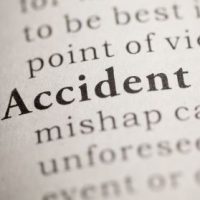When Is an Accident Not an “Accident” Under a Life Insurance Policy?

For many Florida residents, life insurance is a crucial part of their estate plan. Life insurance is often the primary means a person has of ensuring financial security for their family if they die suddenly and unexpectedly. One reason for this is that life insurance is payable to a named beneficiary, so it can pass outside of a person’s probate estate.
Insurer Not Responsible for Doctor Apparently Killed While Mountain Climbing
A potential downside to relying on life insurance, however, is that the insurance company may put up a fight when it comes to paying out the policy benefit. It is important to remember that insurance companies are, at their core, for-profit businesses. They make money by taking in premiums and paying out as little as they have to under the law.
This can often lead to litigation between an insurer and the named beneficiaries of a life insurance policy, Consider this recent case from here in Florida, Goldfarb v. Reliance Standard Life Insurance Company. The decedent was a medical doctor who received life insurance through his company’s benefits plan. This plan included both basic life insurance benefits and accidental death and dismemberment (AD&D) benefits of $500,000 each.
The basic life insurance was payable regardless of how the decedent died. But the AD&D benefits only covered situations where the decedent’s death was “caused solely by an accident.” The policy did not further elaborate on what constituted an “accident.”
In early 2021, the decedent disappeared while attempting to climb a mountain in Pakistan. The decedent was an experienced climber. After confronting unusually dangerous conditions, the decedent’s climbing partner advised him not to continue with the ascent. But the decedent informed his partner he planned to continue. The decedent was never seen or heard from again. Aerial rescue crews later identified a dead body on the mountain that was identified as that of the decedent. Unfortunately, ground rescuers were subsequently unable to locate or recover the body. It was believed the decedent had fallen to his death while attempting the ascent.
Under these facts, a Massachusetts probate court subsequently declared the decedent dead as of January 16, 2021. The decedent had previously named his two sons as the beneficiaries of his life insurance policy. The insurer refused to pay out the AD&D benefit, however, on the grounds that the decedent’s presumed death was not “accidental.” This led to litigation before a federal court in Florida.
Although the trial court sided with the decedent’s sons, the United States 11th Circuit Court of Appeals reversed in favor of the insurance company. Applying the federal common-law definition of “accident,” the appellate court held that the key consideration was whether a “reasonable person” with a similar background to that of the decedent would have viewed injury or death as “highly likely to occur as a result of” their intentional conduct.
Here, the 11th Circuit observed, the decedent chose to continue climbing a dangerous mountain against the advice of his own experienced climbing partner. Under the circumstances, a “reasonable person” would have understood there was significant risk of injury or death if they continued such a climb. As such, the insurer was not liable for coverage under the AD&D policy.
Contact a Florida Estate Litigation Attorney Today
If you are involved in an insurance dispute as the administrator of a Florida estate or trust, it is important that you work with an experienced litigator who understands how the legal system works in this area. To speak with a Pompano Beach estate and trust litigation lawyer, contact the offices of Mark R. Manceri, P.A., today to schedule a consultation.
Source:
scholar.google.com/scholar_case?case=281267593370724595
